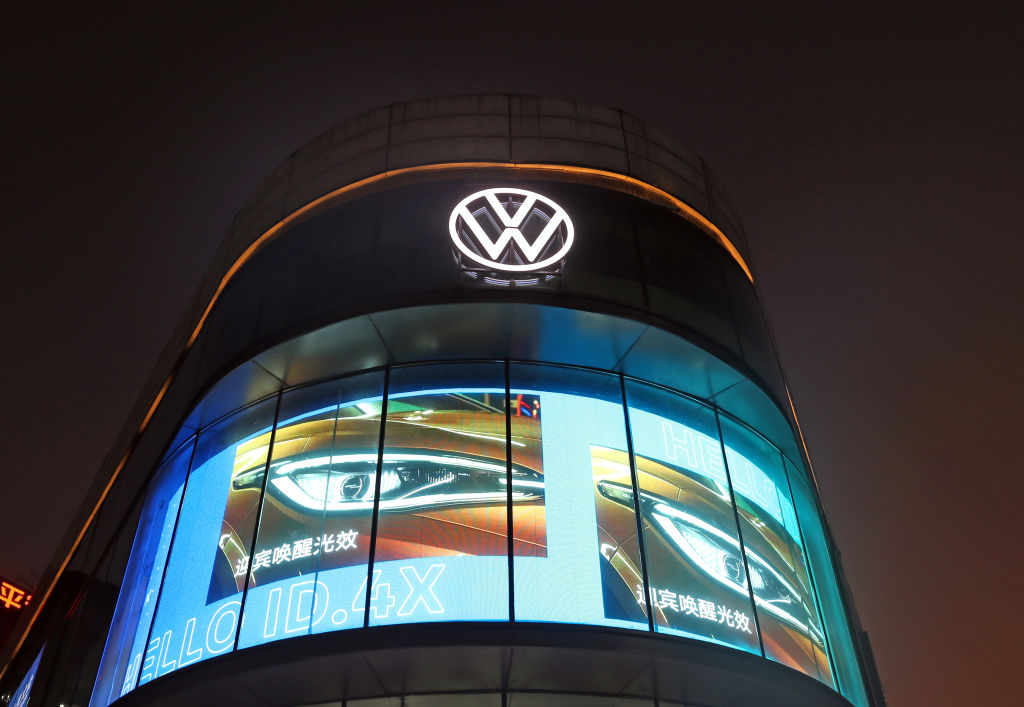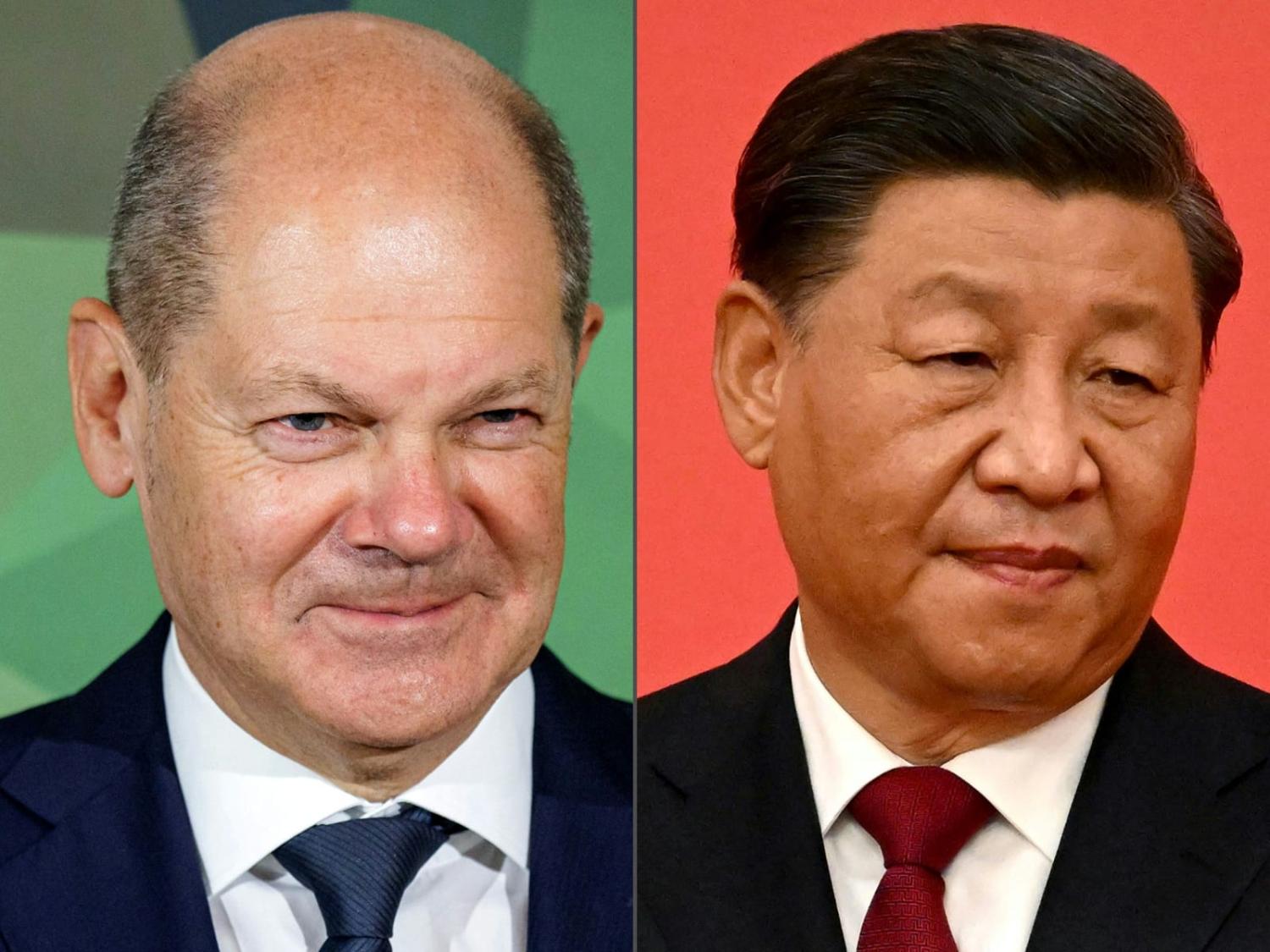On Friday, German Chancellor Olaf Scholz will become one of the first global leaders to visit China since Xi Jinping emerged more powerful than ever from the 20th Communist Party Congress (Scholz has been narrowly beaten by the leaders of Vietnam, Pakistan and Tanzania).
Scholz will bring in tow the CEOs of some of Germany’s biggest companies, including Volkswagen, Siemens and BASF. Many of the big companies in Germany, and particularly its car industry, have become wealthy off the back of China’s growth to the point where they are now largely dependent on, and, in some cases, major decisions on the domestic running of the business are influenced by the Chinese Communist Party. Many are looking to further expand their business in the country.
Justifying his trip to a sceptical domestic and international audience, Scholz wrote in a recent op-ed that Germany does not seek decoupling from China, but rather will pursue a policy of diversification and economic resilience. To achieve this, Scholz states, he prefers “direct conversations” with a changed China, with whom “business as usual is no longer an option”.
But business as usual is exactly how this trip appears. Scholz’s trip, and particularly the invitation of German conglomerates to accompany him, is out of the playbook of the era of his predecessor Angela Merkel. It bears little resemblance to the Zeitenwende (“turning point”) Scholz promised in the wake of Russia’s invasion of Ukraine.
At the time, it seemed like Germany had had a wakeup call after years of vague hopes that economic engagement would eventually lead to more liberal societies and reduced risks of war with authoritarian regimes such as Russia and China, a policy that had long been critiqued by Germany’s neighbours to the East.
To make a high-profile visit at a time when the United States is getting ever tougher on China, most recently with its attempts to strangle China’s high-end domestic chip manufacturing capabilities, sends a clear message that Scholz does not want to follow Germany’s transatlantic partner down a path of partial decoupling and reducing dependencies on autocracies.
And so, over the past couple of weeks, Scholz has pushed through a deal that grants China’s Cosco, a state-owned shipping company, a nearly 25 per cent stake in a terminal in Germany’s biggest port of Hamburg. He is also planning to greenlight the takeover of Elmos, a small semiconductor manufacturing company, by a Chinese subsidiary.
The German government, itself a coalition of three political parties, is split over how to deal with China. Scholz’s decision over Cosco went against the advice of the national intelligence community and six of his ministers, including the defence minister from Scholz’s own Social Democratic Party (SPD) and the finance minister from the Free Democratic Party (FDP).
Scholz’s foreign minister, Annalena Baerbock from the Greens, is clearly not on the same page. Baerbock recently stated: “It is extremely important that we never again make ourselves so dependent on a country that does not share our values.” The economic affairs minister, also a Greens member, is looking into ways to reduce Germany’s dependence on China.
Scholz’s trip is also poorly received in large quarters of the European Union. Heading to China shortly after Foreign Minister Wang Yi expressed China’s intent to “take China-Russia relations and cooperation in various fields to a higher level” has raised more than a few eyebrows, particularly in the bloc’s Eastern states. This trip will further fuel their complaints over what they perceive as Germany’s weak responses to the invasion of Ukraine.
As the other major player within the European Union, French President Emmanuel Macron’s offer to jointly visit Xi in a show of European solidarity was rejected by Scholz. Add that to France’s existing grievances about Germany putting its national interests ahead of common European interests.

How far-flung Europe, and especially the continent’s largest economy, deals with China is not inconsequential for Australia. Europe has taken a progressively greater interest in Indo-Pacific affairs, even as its attention is largely taken up by Russia/Ukraine and a worsening energy/inflation crisis. The European Union is currently considering how to deal with China within its framework of “partner, competitor, and rival”. Earlier this year, NATO for the first time invited all of its Indo-Pacific partners to its July Summit. And in December, EU and ASEAN heads of state and government will meet to forge closer ties.
However, cracks within the European Union and in the transatlantic partnership could make it harder for Australia and Europe to find a common line on China. China is adept at exploiting existing rifts, however small they might appear. The Chinese Communist Party is already billing Scholz’s visit as proof that its foreign policy is “welcome” as a “sharp contrast with US-led Western hegemony”.
Scholz’s approach, echoed in some corners of Europe, which would rather not think too hard about its dependencies on China, also raises questions over whether Europe would be truly committed – and indeed economically able – to impose sanctions on China were it to launch an unprovoked attack against Taiwan. One of Scholz’s SPD colleagues already warns that as it currently stands, Germany would be able to do little more than “wag a finger” were the unthinkable to happen.

